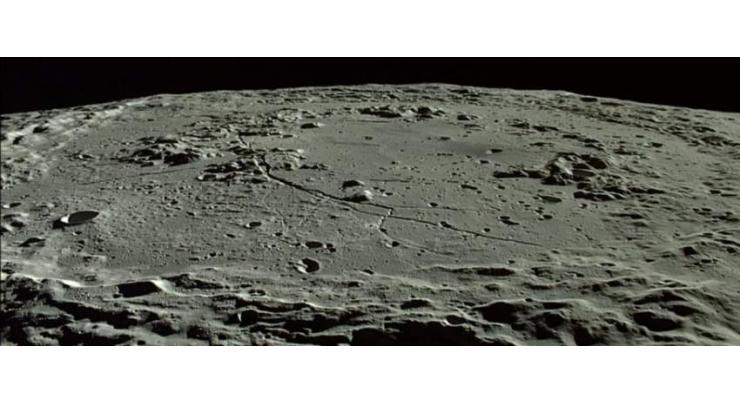
- Home
- Technology
- News
- Russian, US Specialists to Simulate Exit on Moon as Part of SIRIUS Experiment - Cosmonaut
Russian, US Specialists To Simulate Exit On Moon As Part Of SIRIUS Experiment - Cosmonaut
Daniyal Sohail Published March 18, 2019 | 06:15 PM

Russian cosmonaut Evgeny Tarelkin on Monday told Sputnik that he and US specialist Reinhold Povilaitis will make a joint "exit" on a simulated lunar surface as part of the international experiment on modeling a flight to the Moon
"The program of the experiment provides for access to the surface of the Moon via a special simulator of the lunar surface. We will go with US [colleague] Reinhold. As of now, one exit is planned, but there may be more in the course," he said.
According to the cosmonaut, the experiment's participants will take soil samples and will remotely control lunar rovers in the course of the work on the simulator. He did not rule out that the experiment's organizers can create an emergency situation during the "exit" to see the response of the experiment's participants.
The 120-day SIRIUS-19 isolation experiment is scheduled to start on March 19 at the Institute of Biomedical Problems (IBMP) of the Russian academy of Sciences in Moscow.
It reproduces the main stages of a real space flight to the Moon, including the flight itself, search for a landing site, landing, stay in the Moon's orbit, remote control of the lunar rover that will prepare the base, and return to Earth. The crew, led by Tarelkin, will also include flight engineer Daria Zhidova and doctor Stefania Fedyai, as well as researchers Reinhold Povilaitis, Anastasia Stepanova and Allen Mirkadyrov.
In 2016, the IBMP and NASA signed a cooperation agreement on conducting a series of experiments dubbed SIRIUS. The first stage of the SIRIUS experiment took place in November 2017 and lasted 17 days. After the 120-day stage, an eight-month experiment is expected to be held in late 2019 - early 2020. A year-long simulation is planned to be conducted in 2020-2021. It was reported that there could be three year-long experiments, not one, and that the possibility of conducting a longer experiment was being considered.
Recent Stories

Currency Rate In Pakistan - Dollar, Euro, Pound, Riyal Rates On 26 April 2024

Today Gold Rate in Pakistan 26 April 2024

ICC Womens T20 World Cup Qualifier, Match 2: Ireland Women open with Comfortable ..

Robinson, bowlers help New Zealand go 2-1 up against Pakistan

Shahzeb Chachar to hold khuli kachehri on April 26

Heatwave amid Israel's aggression in Gaza brings new misery, disease risk

Tourism must change, mayor says as Venice launches entry fee

Court adjourns Judicial Complex attack case till May 17

Nasreen Noori’s book ‘Popatan Jahra Khwab’ launched

Wafaqi Mohtasib inspection team visits Excise and taxation office

AJLAC announces 5th Conference titled ‘People’s Mandate: Safeguarding Civil ..

Pak-US officials engage to enhance trade, investment ties
More Stories From Technology
-

Punjab CM inaugurates Pakistan’s first Virtual Women Police Station
3 days ago -

Pro Tips: How to Capture Stunning Portraits with the Aura Light Portrait of vivo V30 5G
4 days ago -

Itel celebrates launch of S24—a new brand identity
5 days ago -

Realme C53 Price Slash: High-Tech Meets High Style at New Low Price!
6 days ago -

Take Charge, Live Free: Empower Your Life with Infinix NOTE 40 Series
8 days ago -

PTA Undertakes Consultation with All Pakistan Network Association (APNA) on Proposed Class Value Add ..
8 days ago
-

Vivo V30 5G: The Perfect Blend of Enhanced Photography and Premium Design
9 days ago -
PITB's Regional Plan 9 invites applications for its newly launched incubation centers in Rawalpindi, ..
10 days ago -

Pakistan calls for enhanced information integrity on digital platforms
10 days ago -

Infinix NOTE 40 Series vs. the Competition: Why It Stands Out
11 days ago -

"Unlock Exceptional Value: The New realme Note 50 with Extended Warranty Now Available in Pakistan!� ..
11 days ago -

Google unveils new AI chips, arm-based processor for data centers
16 days ago










